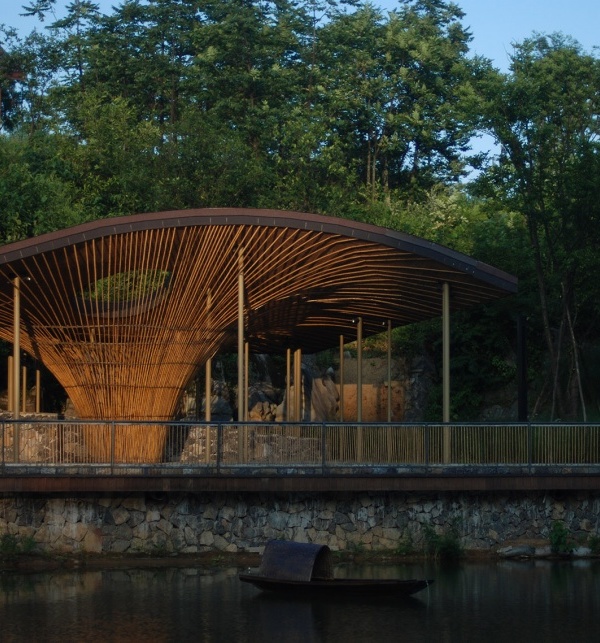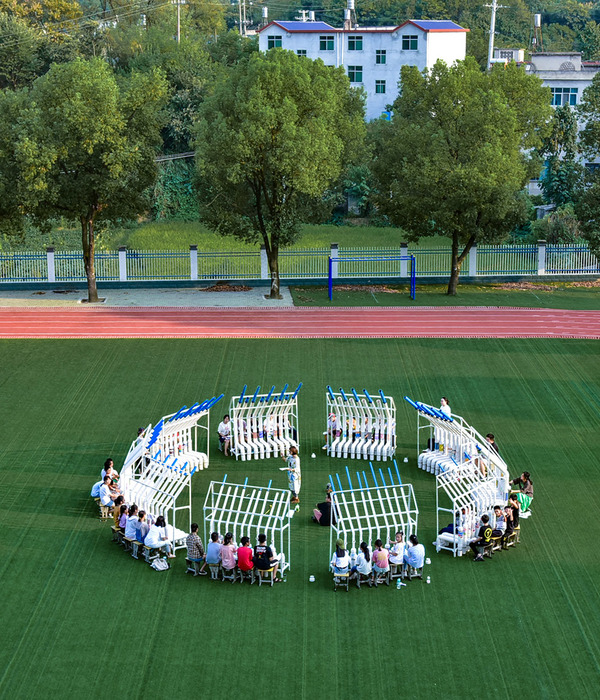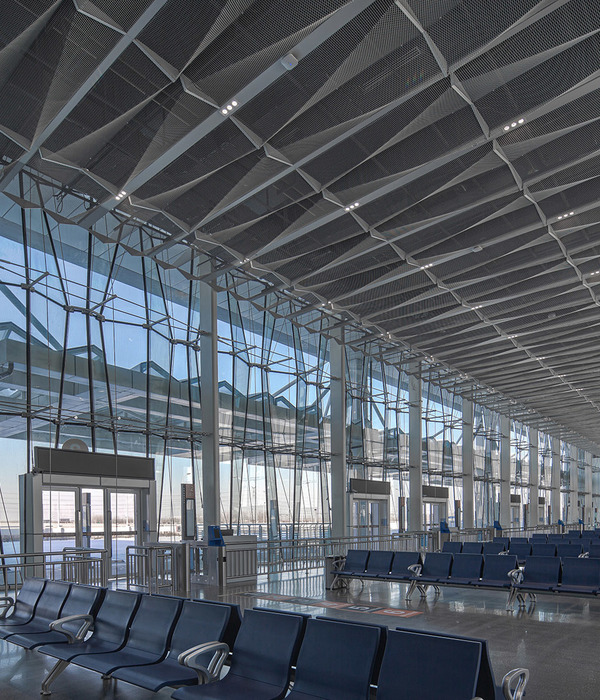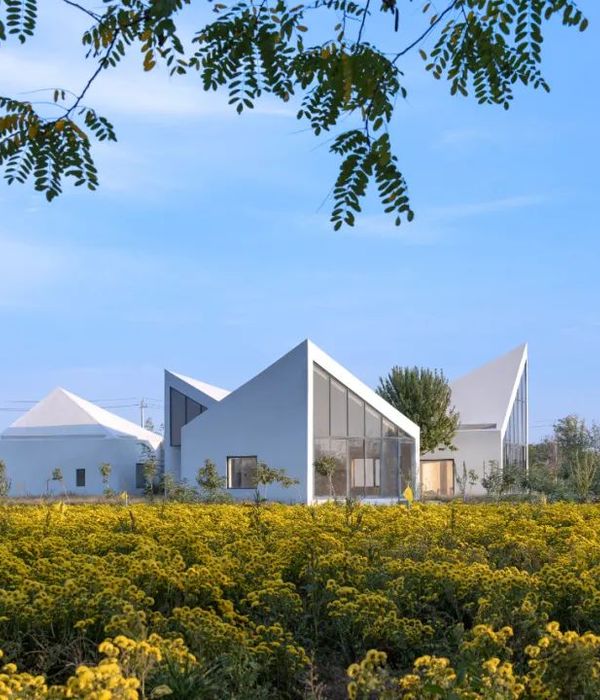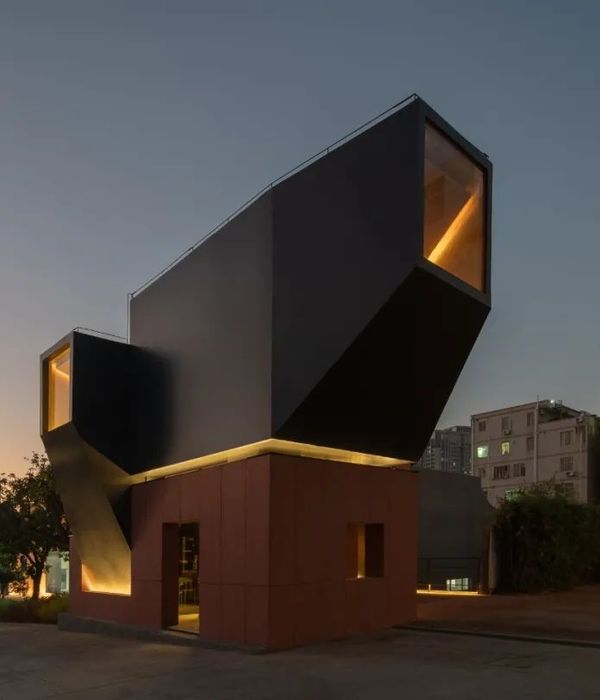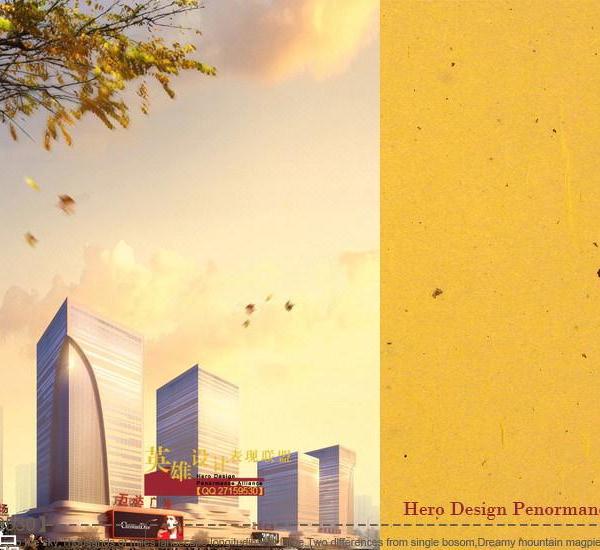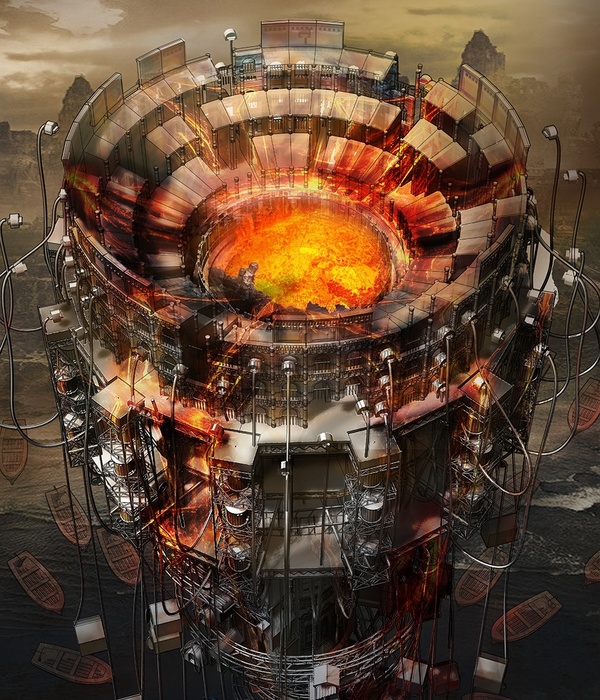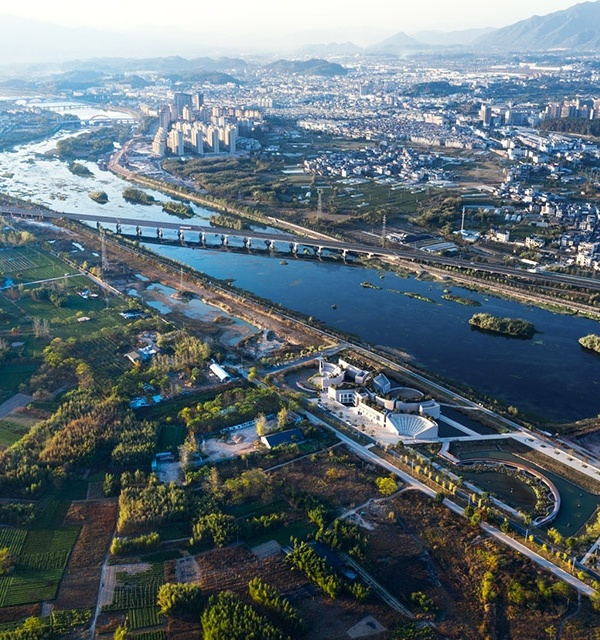城市规划的焦点 Urban planning hotspot
CAMP(建筑和城市规划中心)是布拉格中心城区的规划焦点,旨在促进公众参与关于捷克首都发展的探讨。作为一个开放的平台,CAMP 致力于提供关于布拉格过去与未来的清晰且公开的信息,为那些对首都的总体规划和发展有兴趣的人群提供一个资源丰富的“营地”。
CAMP, the Center for Architecture and Metropolitan Planning, is an urban planning hotspot in the heart of Prague aiming to improve public discussion about the development of the Czech’s capital city. Striving to become an essential source of clear and accessible information about the present and the future of Prague, it functions as an open platform, a “basecamp” for anyone interested in the collective planning and development of the Capital.
▼CAMP筑外观,CAMP – building exterior view ©BoysPlayNice
CAMP 坐落在捷克著名建筑师 Karel Prager 设计的现代主义建筑中,其所属的布拉格规划与发展研究院也位于此处。CAMP 包含有一个 200 平方米、设有独特大型投影屏幕的展厅,一个藏有大量建筑、城市以及设计相关书籍的图书馆,一间咖啡厅,一个露天庭院以及一间现代的演讲厅。
Housed in a modernist building designed by a famous Czech architect Karel Prager, CAMP shares the address with its guarantor and implementer Prague Institute for Planning and Development. CAMP hosts a 200 m2 exhibition hall with a unique, large projection screen, a library with a large selection of publications about architecture, urbanism and design, a café, an outdoor patio and a modern lecture hall.
▼街道视角,view from the street ©BoysPlayNice
▼位于前院的装置,installation in the forecourt ©BoysPlayNice
▼从装置望向入口立面,view to the entrance facade from the installation ©BoysPlayNice
CAMP 是为建筑师、规划师以及市民们服务的集会场所,为关于城市未来的开放式讨论提供了一座枢纽,旨在通过多样的公共会议、演讲、工作坊、电影放映等活动来解决城市的可持续发展问题。
除了针对布拉格过去与未来的各类讨论之外,CAMP 还会定期举办讲座和“城市对话”活动(Urban Talks),并邀请国际著名建筑师参与其中,展示他们的作品并谈论建筑和城市规划在其国家的特殊性。这些建筑师和事务所包括圣地亚哥·卡拉特拉瓦、藤本壮介、Smiljan Radić、Snøhetta、COBE 以及其他来自全球的专家。
CAMP is a meeting place for architects, planners and citizens, a hub for brainstorming the future of the cities, with a diverse programme of public discussions, lectures, workshops, film screenings and other activities addressing the sustainability of our cities.
Along with different kinds of workshops addressing the Prague’s present and future, CAMP regularly host famous international architects in one of its lectures and discussion cycles – Urban Talks. Among the guests presenting their work and discussing the specificity of the architecture and urban planning of their countries were Santiago Calatrava, Sou Fujimoto, Smiljan Radić, Snøhetta, COBE and other experts from all around the globe.
▼入口区域,entrance area ©BoysPlayNice
建筑师的描述 Architects’note
CAMP-建筑和城市规划中心坐落在一栋设计于上世纪 60 年代、建造于 70 年代的建筑当中,其设计者为著名建筑师 Karel Prager。建筑的双层基座部分容纳了布拉格市设计研究院的设施,基座上方悬浮着三个深色的体块,轻盈的外壳为其赋予了棱镜般的外观。大型展馆“Baucenter”本身就被包含在 Prager 的设计当中,但在 CAMP 开放之前,除了 90 年代初期举办过数次展览,该空间一直未能得到有效利用。
▼场地轴测,site axon ©NOT BAD
The Center for Architecture and Metropolitan Planning resides in a building designed in the 60s and built in the 70s by the significant architect Karel Prager, located in the bombarded section of a medieval monastery complex. A set of three dark prisms with a light surface shell, elevated above the ground on top of two storey pedestals, served as a facility space for the Design Institute of the City of Prague. The Large exposition hall (the “Baucenter”) was already included in Prager’s concept, however apart from a few expositions in the early 90s, the space never served its original purpose until the opening of CAMP.
▼基座上方悬浮着棱镜般的体块,the“dark prism”elevated above the ground on top of two storey pedestals ©BoysPlayNice
立面细节,facade detailed view ©BoysPlayNice
虽然该项目并非针对综合体的整体重建,但在设计 CAMP 的过程中,项目团队仍然十分重视对于 Karel Prager 设计的原始建筑的保护,尤其是对两个既有大厅的“物尽其用”:团队付出了巨大的努力,希望能够最大程度地利用这两处宽敞的空间,使其成为 CAMP 的核心区域。首先,对非计划中的装置和隔墙进行了拆除,并重新设计了用于划分展览空间和服务空间的系统。贴墙瓷砖和贯穿室内外的石灰岩地面是从拆除的过程中挖掘而来的原始物料;另一方面,所有新置入的元素和层面均以清晰的方式展现和强调出来。
Even though the project was not a general reconstruction of the building complex, during the process of designing CAMP, great importance was appointed to the conservation of the original architecture by Karel Prager. Notably, in the case of the two halls, a great deal of effort was given to make use of their generous spaces and to maximize the palette of usage they offered. Thus, two multi-functional halls that are the core of CAMP were created. First came the disposal of unintended installations and partitions and the designing of a new system of division into exposition and service spaces. The original high-quality materials of ceramic wall tiles and limestone floors emerging from the interior into the exterior were excavated from under layers of later-on additional installments. On the contrary, all the newly designed elements and layers were placed as clearly identifiable and contrasting.
▼首层空间轴测,axon – ground floor ©NOT BAD
The larger “black” hall with the capacity of up to 250 visitors, completely blocked of daylight, is dominated by a panorama projection surface of 24×4 meters with an 8K resolution. This projection surface offers new possibilities in terms of working with images and, aside from audiovisual tracks accompanying expositions and lectures, provides also, for example, a 1:1 scale simulation of an urban city space.
▼“”展览厅,“black”hall ©BoysPlayNice
▼展厅内设有 24×4 米的 8K 全景投影屏幕,the“black”hall is dominated by a panorama projection surface of 24×4 meters with an 8K resolution ©BoysPlayNice
▼投影屏幕细部,projection surface detailed view ©BoysPlayNice
投影墙的后方是图书馆,包含自习厅和书店。既有建筑的中央设有宽阔的玻璃中庭,为室内引入大量的自然光。
The library, along with the study hall and bookstore, is on the back side of the projection wall. It gets plenty of sunlight from the generous glass atrium that lies in the center of Prager’s blocks.
投影墙后方的图书馆,the library on the back side of the projection wall ©BoysPlayNice
▼书店,bookstore ©BoysPlayNice
展厅旁设有一个小型剧场,可举办讨论、讲座或电影放映。
Annexed to this hall is a small arena used for discussions, smaller lectures or a movie theater.
剧场,thesmall arena©BoysPlayNice
▼座位,seats©BoysPlayNice
"白色"会议厅与"黑色"展览厅形成了相互平衡的关系。会议厅拥有三个宽阔的透明立面,可用于举办会议、小组讨论、演讲或可以承受阳光直射的特殊展览。
The “white” conference hall is in a counterbalance to the dark exposition hall, with its munificent three-sided transparent surfaces. It is convenient for conferences, group meetings, presentations or specific expositions that can endure the flood of sunlight.
▼会议厅,conference hall ©BoysPlayNice
▼景观,landscape ©BoysPlayNice
入口大厅和咖啡厅是两个主厅的重要节点,提供了充足的引流空间,同时起到导向和定位的作用。在大型活动期间,这两个空间的功能可以彼此流通,从而形成补充和协同增效的关系。
The entrance hall and café are a node point for both halls and offer enough dispersion space, easing orientation and allowing a view into both halls. In case of a large event, this allows a “pouring” of a program from one space into another in order to allow their spatial qualities to synergically complement each other.
厅,café ©BoysPlayNice
▼从书店望向咖啡厅,view to the café from the book store ©BoysPlayNice
视觉识别系统作为关键性的部分,与 CAMP 的室内设计紧密地结合在一起。其设计概念以方形网格中的点为基础进行不同比例的缩放。网格的基本应用源于初始建筑中瓷砖的铺设方式(也是构成 Prager 设计的主要元素)。网格中的节点具体表现为不规则的不锈钢螺钉和螺母,形成闪闪发亮的圆柱形节点,可作为展览板的固定系统、家具连接件或者空间导航元素。
The interior of CAMP was created in a close collaboration with the authors of its visual identity and therefore can be considered its primary and key application. This concept is based on points in a square grid whose base subject is the work with scaling and density. The fundamental application of this grid in the interior is derived from the format of the original ceramic tiles, a dominant and authentic element of Prager’s architecture. Node points in the grid are materialized by atypical stainless steel screws and nuts creating shiny cylindrical joints. These serve as an anchor system for exposition panels, furniture joints or as space navigation.
▼闪闪发亮的圆柱形节点贯穿整个视觉识别系统,the shiny cylindrical joints plays a main role in the visual identity system ©BoysPlayNice
▼圆柱形节点用于展板固定,steel screws and nuts used as an anchor system ©BoysPlayNice
▼圆柱形节点用于家具元素,steel screws and nuts used in the furniture ©BoysPlayNice
▼圆柱形节点用于楼梯,steel screws and nuts used in the staircase ©BoysPlayNice
向所有人开放 Accessible to all
▼门厅,entry hall ©BoysPlayNice
建筑电车 Architectural tram
CAMP 还突破了建筑的界限,走向布拉格的大街小巷。通过与大众交通公司的合作,CAMP 创建了一条建筑电车路线,将在布拉格的街道中穿行数月,并定期举办导览旅行。
CAMP also stepped out of the Prager’s walls and virtual space on to the streets of Prague. In cooperation with the Public Transportation Company an architectural tram was created, running through the streets of Prague for several months, regularly hosting guided tours.
电车路线,architectural tram ©BoysPlayNice
▼建筑细部,building exterior view ©BoysPlayNice
▼布拉格城市风貌,CAMP in the city of Prague ©BoysPlayNice
▼场地平面图,site plan ©NOT BAD
▼轴测图1,axon 1 ©NOT BAD
▼轴测图 2,axon 2 ©NOT BAD
▼平面图,floor plan ©NOT BAD
{{item.text_origin}}


